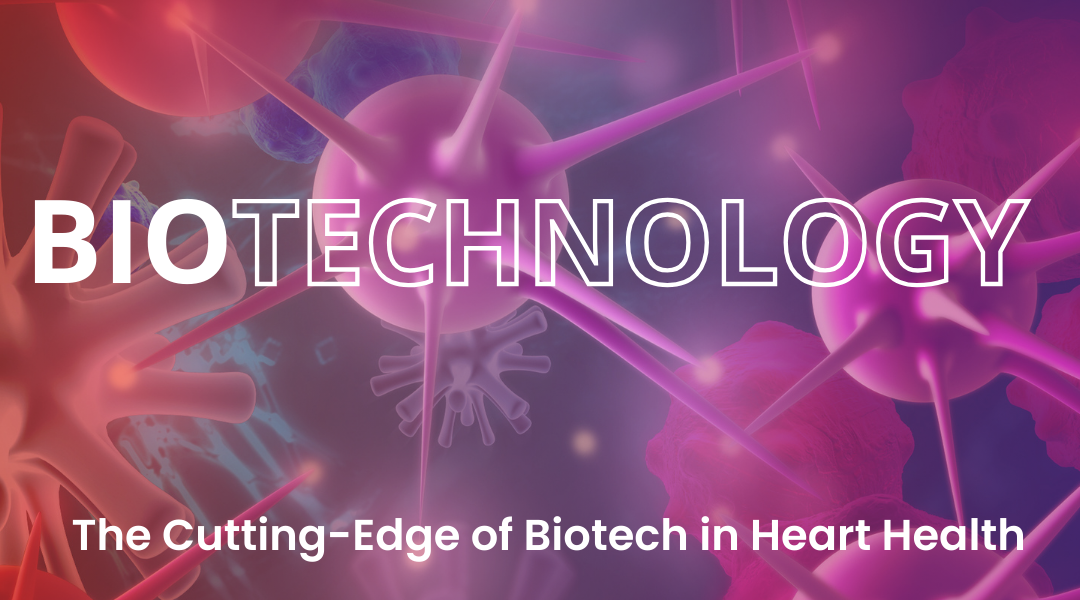In the ever-evolving world of medical science, biotechnology has emerged as a pivotal force in advancing cardiovascular drug development. This field, at the intersection of biology and technology, has unlocked new horizons in understanding and treating heart-related ailments, offering hope to millions worldwide.
The Cutting-Edge of Biotech in Heart Health
Biotechnology’s role in cardiovascular drug development is multifaceted. First, it has significantly improved our understanding of the genetic and molecular bases of heart diseases. With techniques like CRISPR and next-generation sequencing, researchers can now identify genetic markers associated with cardiovascular conditions, leading to more personalized and effective treatments.
Innovative Drug Discovery and Design
Another remarkable contribution of biotechnology is in the area of drug discovery and design. Biotech companies are at the forefront of creating innovative drugs that target specific pathways involved in cardiovascular diseases. These include monoclonal antibodies, small molecule inhibitors, and RNA-based therapies that offer targeted treatment with fewer side effects.
Enhanced Drug Delivery Systems
Moreover, biotechnology has revolutionized drug delivery systems. Nanotechnology, for instance, allows for the creation of nanoparticles that can deliver drugs directly to the affected area in the heart, maximizing efficacy and minimizing systemic side effects. These advanced delivery methods are crucial in treating conditions like atherosclerosis and heart failure.
Personalized Medicine: A New Era
The advent of personalized medicine is perhaps the most exciting biotechnological advancement in cardiovascular care. By analyzing a patient’s genetic makeup, doctors can predict how they will respond to certain medications, enabling more tailored and effective treatment plans.
The Road Ahead
As biotechnology continues to evolve, we can expect even more groundbreaking developments in cardiovascular drug development. This includes the potential for regenerative therapies using stem cells to repair damaged heart tissue, offering new hope for patients with chronic heart conditions.
Embracing Biotechnological Innovations
The field of biotechnology is not standing still. Continuous research and development are leading to more innovative solutions in cardiovascular drug development. For example, the use of bioinformatics and computational modeling helps in predicting drug behavior and interactions in the body, streamlining the drug development process.
The Impact of Biotech on Clinical Trials
Biotechnology has also revolutionized the way clinical trials are conducted. With advanced genetic profiling and biomarker analysis, researchers can select suitable candidates for trials more efficiently, ensuring that the drugs being tested are more likely to be effective for the intended patient population.
Collaborations and Partnerships
The advancement in cardiovascular drug development is also a testament to the power of collaboration between biotech companies, academic institutions, and healthcare providers. These partnerships ensure a multidisciplinary approach to drug development, combining cutting-edge research with clinical expertise.
Sustainability and Ethical Considerations
As we progress, it’s also essential to consider the sustainability and ethical aspects of biotechnological innovations. Biotech companies are increasingly focusing on developing drugs that are not only effective but also produced sustainably. Additionally, ethical considerations, especially in genetic research and manipulation, are paramount to ensure responsible and beneficial use of biotechnology.
Educating the Public and Healthcare Professionals
An important aspect of embracing biotechnology in cardiovascular drug development is education. Informing the public and healthcare professionals about new treatments, their benefits, and their implications is crucial for their acceptance and proper utilization.
Conclusion
Biotechnology’s contributions to cardiovascular drug development represent a significant leap forward in medical science. It’s a fusion of innovation, precision, and care that is reshaping the landscape of heart health. With ongoing research, collaborative efforts, and a commitment to ethical practices, biotechnology continues to pave the way for revolutionary treatments and a brighter future for cardiovascular health.

